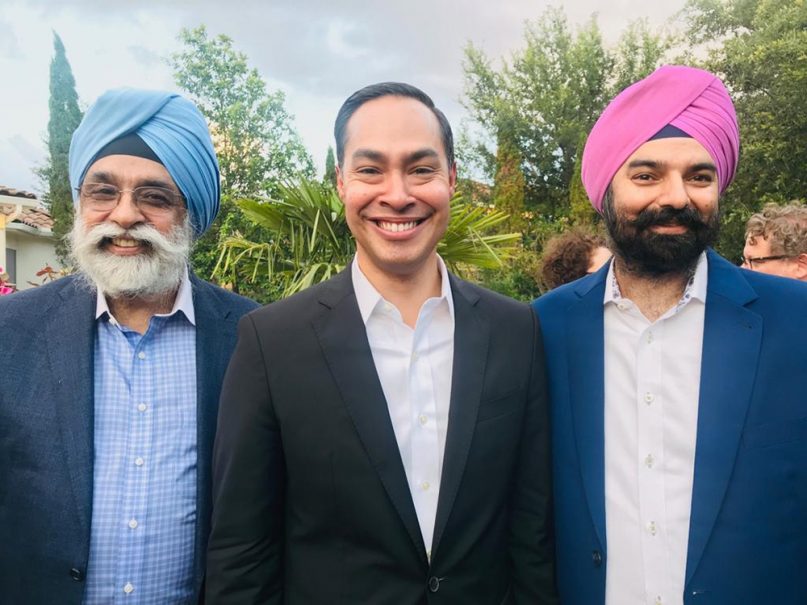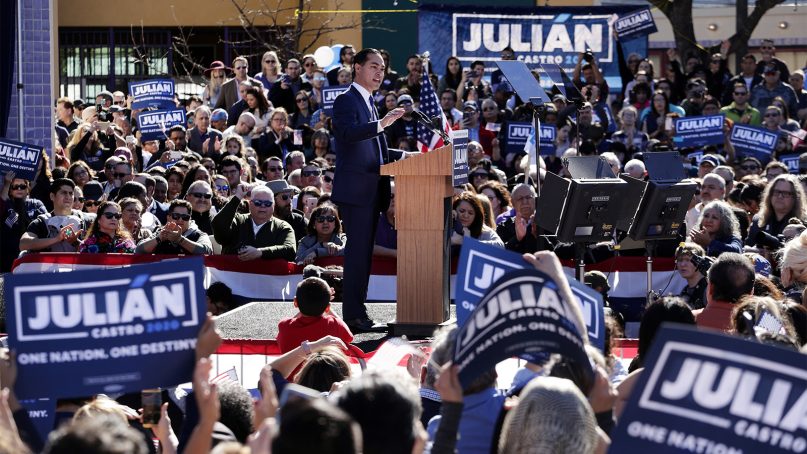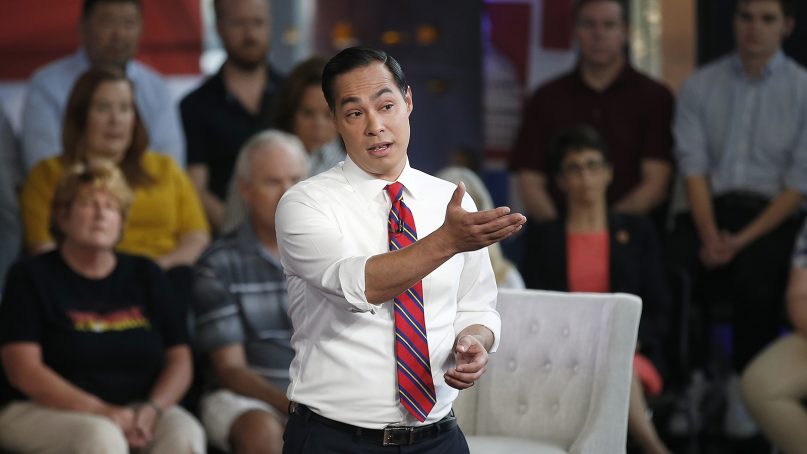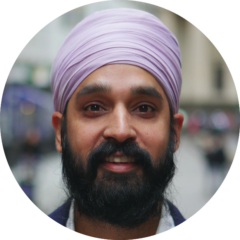(RNS) — Former U.S. Secretary of Housing and Urban Development Julián Castro is not the first Democrat from South Texas to run for president; Sen. Lloyd Bentsen did so in 1976, eventually losing to Jimmy Carter. But Castro comes from a side of Texas that has not been represented at the national level: Mexican-American, Catholic, with a Harvard law degree and time in Barack Obama’s Cabinet, he’s a progressive with a strong social justice bent.
A native of San Antonio, where Castro was a two-term mayor, I’ve watched his career closely and recently had a chance to speak with Secretary Castro about his Catholic upbringing, his commitment to justice and why he believes the 2020 election is a critical moment for the soul of America. This interview has been edited for length and clarity.
What does being Catholic mean to you and how does it inform your worldview?
I grew up in a household with a strong Catholic tradition. The grandmother I grew up with had been a devout Catholic when she was growing up. I remember going to Mass with her when I was a kid, and she would wear a veil over her head like traditional Catholics would. My mother went to 16 straight years of Catholic school. She also became this hell-raiser when she was a young woman. Very politically active. Very progressive. I grew up with both of these things: this Catholic tradition and this very progressive mother.
You often talk about basic human dignity and equality as the foundation of your policy proposals. Why do they matter so much to you?
The whole reason I got into politics and public service in the first place was based on this idealistic notion that we could create a world in which everybody is able to reach their full potential. Everybody is able to prosper. Some of that is rooted in the Catholic faith, a lot of it is rooted in the upbringing I had with my mother, this progressive upbringing. It’s also all based on the idea that all of us are God’s children and that we all have the same worth and dignity.

Presidential candidate Julian Castro, center, with G.P. Singh, left, and Gurpaul Singh on May 23, 2019, in San Antonio. Photo by Lakhpreet Kaur
That’s interesting because a common critique of progressives is that they lack a religious commitment, and therefore moral and ethical fortitude, as if religion is the only way to have moral grounding.
It’s amazing to me to see progressives and Democrats — over the last four years especially — put in this box of somehow not living up to our moral ideals or ethical ideals. The exact opposite is true. I see progressive values and progressive vision as completely in line with the teachings of Jesus Christ and of other religious figures that people believe in — basic kindness and compassion and respect for others and doing something for people other than yourself. All of these things that we champion as progressives are consistent with the teachings of Jesus and many other religious figures.
In San Antonio you’ve had a close relationship with minority communities, including religious minorities. How have you been able to cultivate trust among the various communities that you serve?
I see that as one of the most important and impactful things that we can do as leaders. First of all, to make sure that everybody is respected, to take time to understand the differences among us and also find common ground and that we ensure that there are never any second-class citizens in our community.
People have been persecuted over the generations for many different reasons, including religious reasons. Over my time in public service, I’ve been committed to bringing everyone into the fold. I would like to think that people have seen from me that these relationships are genuine.
We are witnessing an intense surge in hate around the country, much of it manifested as violence targeting religious minority groups, especially Jews and Muslims. How would you hope to address the rise in hate?
There’s an urgency that we should all feel to stand up against hate and bigotry. And that begins with leadership that calls people together instead of trying to divide people along these lines whether they’re religious or racial or otherwise.
I look forward, if I’m elected, to be the leader who tries to bring people together and tries to foster understanding, because so much of hate and bigotry is based on fear and misunderstanding. I did that when I was mayor of San Antonio. I worked hard with different religious communities in the city to try and foster greater understanding. Fortunately, I come from a city where, over the years, better than most big cities, people of different backgrounds have worked well together. I have that as a model, understanding that reaching across faith lines and doing the hard work to build relationships is not only possible but that it can be done — and that everyone is better for it.

Former San Antonio Mayor and Housing and Urban Development Secretary Julián Castro speaks during an event where he announced his decision to seek the 2020 Democratic presidential nomination, on Jan. 12, 2019, in San Antonio. (AP Photo/Eric Gay)
Your team has worked hard on innovative policy proposals that address immigration, police reform, affordable housing. Can you talk about where you are coming from on these issues that disproportionately affect communities of color?
When my grandmother that I grew up with came to Texas, she walked past signs and storefront windows that said, “No Mexicans or Dogs Allowed.” When my mother was a young girl, she and her peers were punished for speaking Spanish at school. I grew up in a public school system that was the legacy of segregation and discrimination, and a generation of children were shortchanged because of that. I want to make sure that nobody goes through that.
Leaving aside the politics of the immigration question for a moment, what sorts of religious and ethical imperatives are at play here?
This is a test — treating human beings with basic respect and dignity, no matter who they are. This administration has failed that test. We don’t have to fail that test. If we don’t change what we’re doing, and if we allow people to remain in cages, that will corrode who we are. All of us as a people will fall short of living up to the values that we profess.
How do we do that? Can religion make a difference?
I believe that the vast majority of people in this country have open hearts, even if they don’t completely understand the faith or background of a fellow American or of an undocumented immigrant. I would like to believe that the vast majority of Americans do have an open heart, and they want to live up to the best of their values, whether it’s Christian or Jewish or Muslim or any other religion. That lays a strong foundation on which we should be able to build, to create a country of greater respect for the least among us, a greater appreciation for our differences and a greater willingness to find the strengths in our commonalities.






